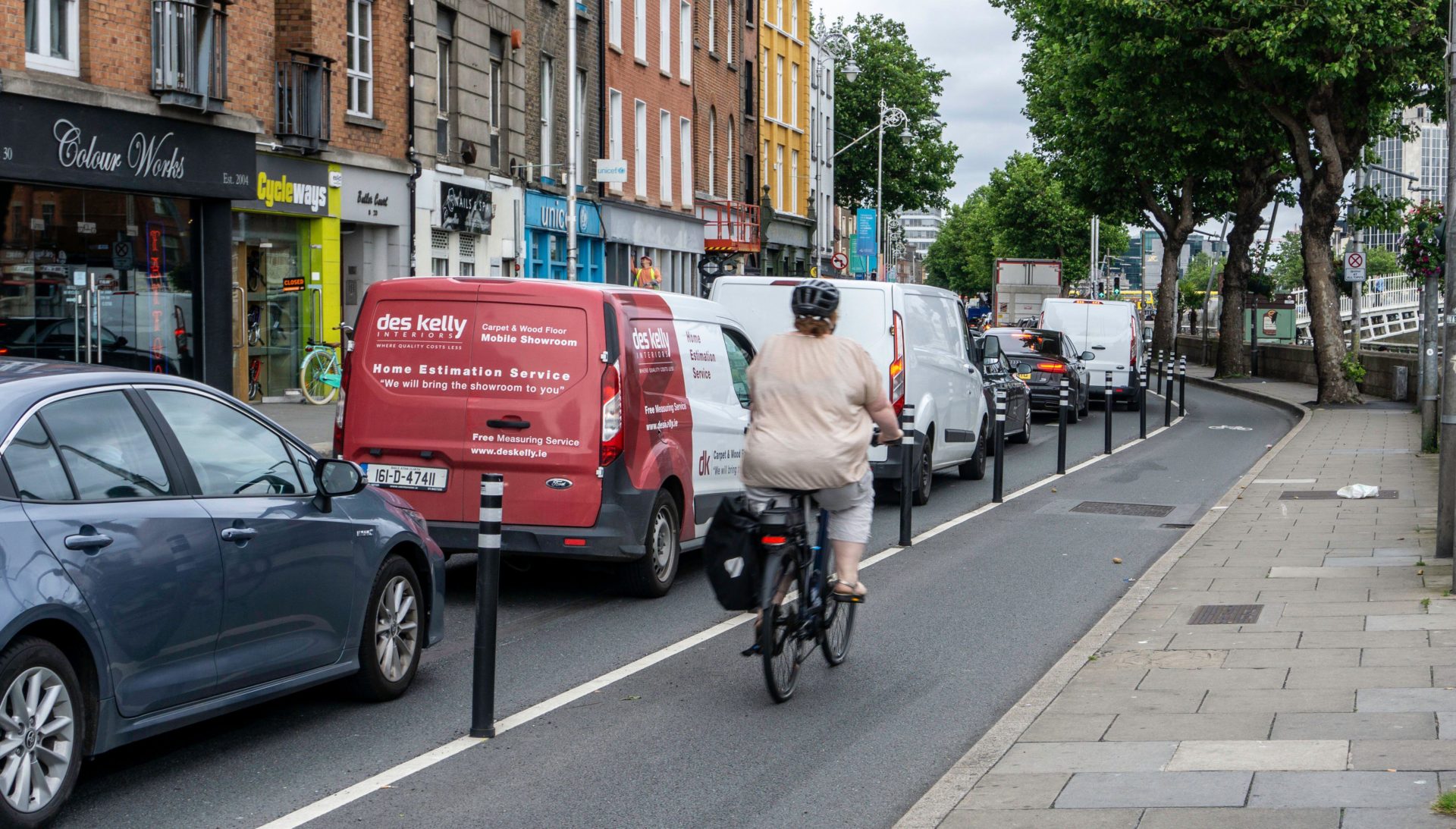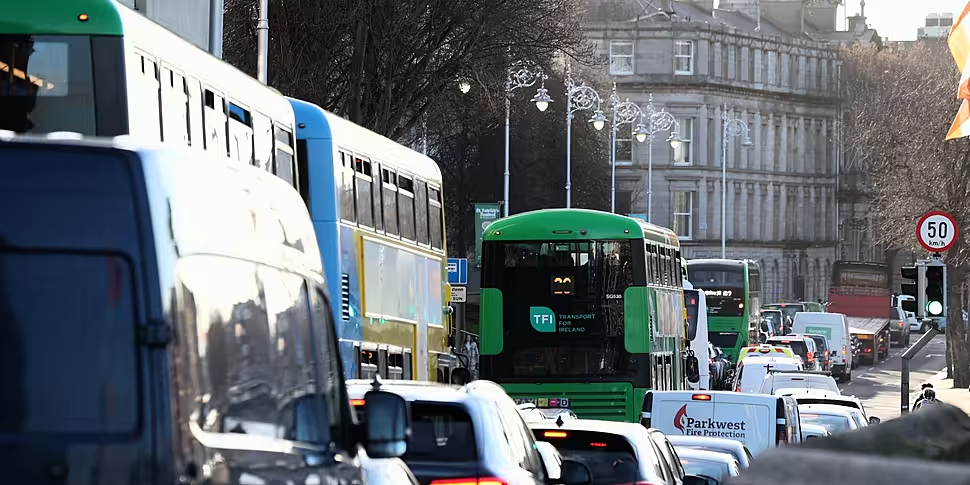The introduction of ‘bus gates’ in Dublin should “improve travel times” through the city centre, a leading expert on transport has said.
From August, only public transport will be allowed to pass through ‘bus gates’ located on Bachelors Walk and Aston Quay.
Speaking on The Pat Kenny Show, Professor Brian Caufield said it means private cars will not be allowed to drive down a “fair stretch of the Quays”.
“So, basically, in those stretches of the Quays around Batchelor’s Walk and Aston Quay, they’re going to basically ban private car traffic from using those stretches of road and have them exclusively for bus transport,” he said.
“The reason behind it is because they know that that’s the part of the city that is a bit of a pinch point when it comes to expediting buses through the city and to improve the travel time for them.”
 Traffic along the River Liffey in Dublin. Image: noel bennett / Alamy Stock Photo
Traffic along the River Liffey in Dublin. Image: noel bennett / Alamy Stock PhotoProfessor Caulfield said the idea behind the plan is to encourage people to take public transport, thus reducing congestion in the city centre.
“The idea would be that because traffic would be cleared up of the amount of people that would be driving in a single occupancy car to get to the other side of the city, the traffic would be freer - about 60% less traffic - [and] the more circuitous routes would be faster,” he said.
Opponents of the plan fear it will make it incredibly difficult for people to travel through the city centre and Professor Caulfield conceded Dublin lacks the public transport infrastructure many capitals take for granted.
“We don’t have a metro, we don’t have a proper Luas network, we don’t have enough dedicated space for cyclists, we don’t have fast enough buses,” he said.
“That list is very long because of decades of underinvestment in public transport in this city [and] whataboutery that’s stopped big projects going ahead.
“Listening to the outgoing Taoiseach last night, where he was talking about investments that we didn’t do on time, I almost thought he was going to say Metro.
“That would have been one of the big investments that we didn’t do on time.”
A chance to re-think?
For those who oppose the plan, there is a chance Dublin City Council will change its mind after local residents go to the polls in June.
“There is a local election coming up and it will be up to the new local authority in Dublin city,” Professor Caulfield said.
“If they don’t like the plan, they can reverse the plan; they’re the ones that are in charge of it.”
In its Climate Action Plan in 2021, the Government said it aspired to halve emissions from transport by the start of the next decade.
Main image: Severe traffic delays on the South Quays in Dublin city centre in March 2023. Image: Sam Boal/Rollingnews.ie









